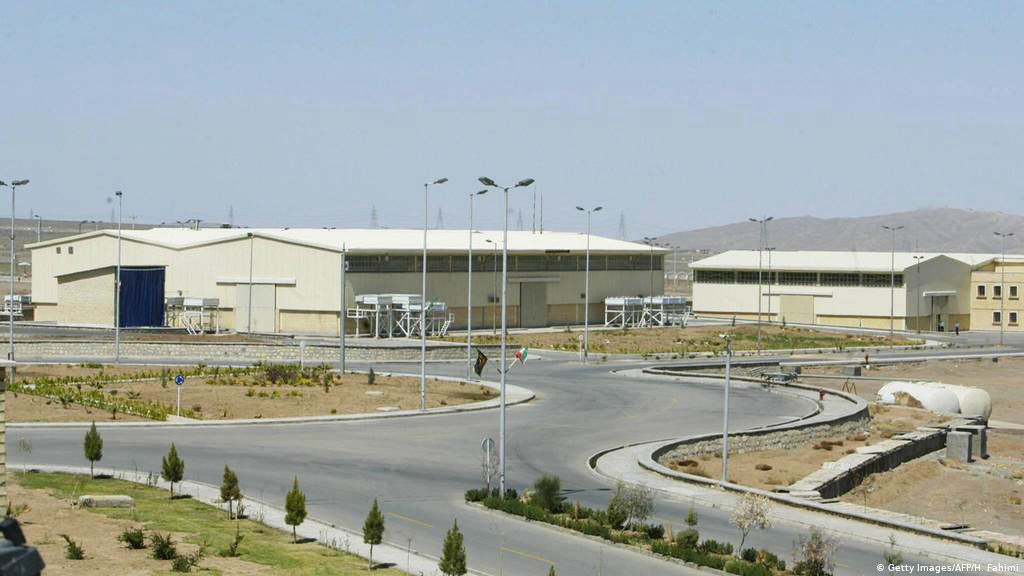click to dowload our latest edition
CLICK HERE TO SUBSCRIBE TO OUR NEWSLETTER


Published
3 years agoon
By
Harry JoffeA story broke in The Jerusalem Post on 11 April that Iran’s Natanz nuclear facility had once again been attacked. According to the paper, the site’s electric grid and its backup system were destroyed along with a large number of centrifuges. It estimated that the latest attack had added nine months to Iran’s breakout time.
This isn’t the first time this facility has been attacked. In 2010, it was struck by a mysterious Stuxnet computer worm believed to have been a joint effort between the Israel Defense Force’s (IDF’s) 8200 Unit and the National Security Agency of the United States (US). In July 2020, it suffered a major explosion, where, again, according to The Jerusalem Post, it was estimated that three-quarters of the above-ground centrifuge assembly facility was destroyed.
It’s therefore no surprise that this particular facility was targeted once again. The only question is, why now, and why was Israel less secretive about this operation? This time around, there were leaks to the local press and barely concealed satisfaction from Prime Minister Benjamin Netanyahu and Lieutenant General Aviv Kochavi (chief of general staff of the IDF). Previously, they refused to comment.
The answer, of course, is the resumption this past week of talks in Vienna between Iran and various other countries (Britain, France, Germany, China, Russia, and indirectly the US) in an attempt to resuscitate the 2015 nuclear deal.
The close link between the two events is unlikely to be coincidental. By attacking the nuclear facility now and almost leaving a calling card this time, Israel no doubt attempted to reap some strategic benefits.
First, a clear warning was sent to the US. The US’s negotiating officials have stated that they want any return to the 2015 deal to be accompanied by amendments to the deal to make it “longer and stronger”. However, Israel and its new Gulf allies fear that any changes to a newly signed deal will be cosmetic and not address their fears.
While it’s unlikely that Israel is against a nuclear deal per se, Israel has three key clauses that it insists must be included in any upgraded deal. If these aren’t included, Israel fears its security will be severely compromised.
The most important amendment to the 2015 deal is no “sunset clause”. The current nuclear deal which placed limitations on Iran’s nuclear programme would expire in 2030, and this is unacceptable to Israel.
It requires a much longer limitation on Iran’s nuclear programme. The second key problem, according to Israel, is the lacuna that the 2015 deal didn’t address Iran’s ballistic missile programme, which Israel finds unacceptable.
Israel’s third problem with the 2015 deal is that it didn’t address Iran’s malign activities in the Middle East, and its destabilisation of various neighbouring countries.
Israel believes it cannot live with a new agreement that doesn’t address these three key issues, and this strike is a statement of intent to the US. It says, “Sign a deal that doesn’t address our concerns, and we won’t be bound by it.” Or, even more directly, “If you ignore our concerns, expect a lot more attacks and instability.”
What’s increasing Israel’s anxiety and no doubt caused it to strike now is Western efforts to achieve a breakthrough in negotiations before the 18 June Iranian presidential election. Israel fears a more hardline leader could emerge and scupper talks.
This rush to reach a settlement, Israel fears, could lead to the US signing a new deal prematurely, before all the issues are adequately addressed.
Many commentators believe the Obama negotiators were outmanoeuvred last time by the Iranians, and Israel no doubt wants to raise the temperature now as a warning not to rush into a situation of being similarly outplayed.
The second reason that now would be a good time to strike the facility from the Israeli point of view is that Israel knows Iran doesn’t want any major escalation at this stage. It would put any new agreement at risk.
Israel could feel safe in therefore taking another shot to “change facts on the ground” without fearing any major retaliation. That has proven true. While Iran has threatened to retaliate, it hasn’t done so. Also, its move last Tuesday, 13 April, to announce it would be enriching uranium to 60% purity might have worked against it.
The US and European parties to the deal called the move “provocative”, and warned it was contrary to efforts to revive the deal abandoned by Washington three years ago.
On the other hand, some commentators are speculating that the Israeli strike could backfire. With Iran enriching uranium to 60%, in spite of the strike and the damage it caused, it could make the US and Europeans more anxious and lead to them pressurising their negotiators to reach a deal quickly. That could therefore achieve the exact opposite of what Israel intended, and lead to a hurried deal being signed, with Israel’s key concerns not adequately addressed.
It’s well known that in international geopolitics “timing is everything”, and this doubtless caused Israel to strike when it did. It remains to be seen, however, whether this more aggressive attempt by Israel to influence the nuclear talks will bear fruit, and whether the strike achieved its tactical and strategic aims.
This will become clearer in the next few weeks as the game of diplomatic and military poker plays out.
